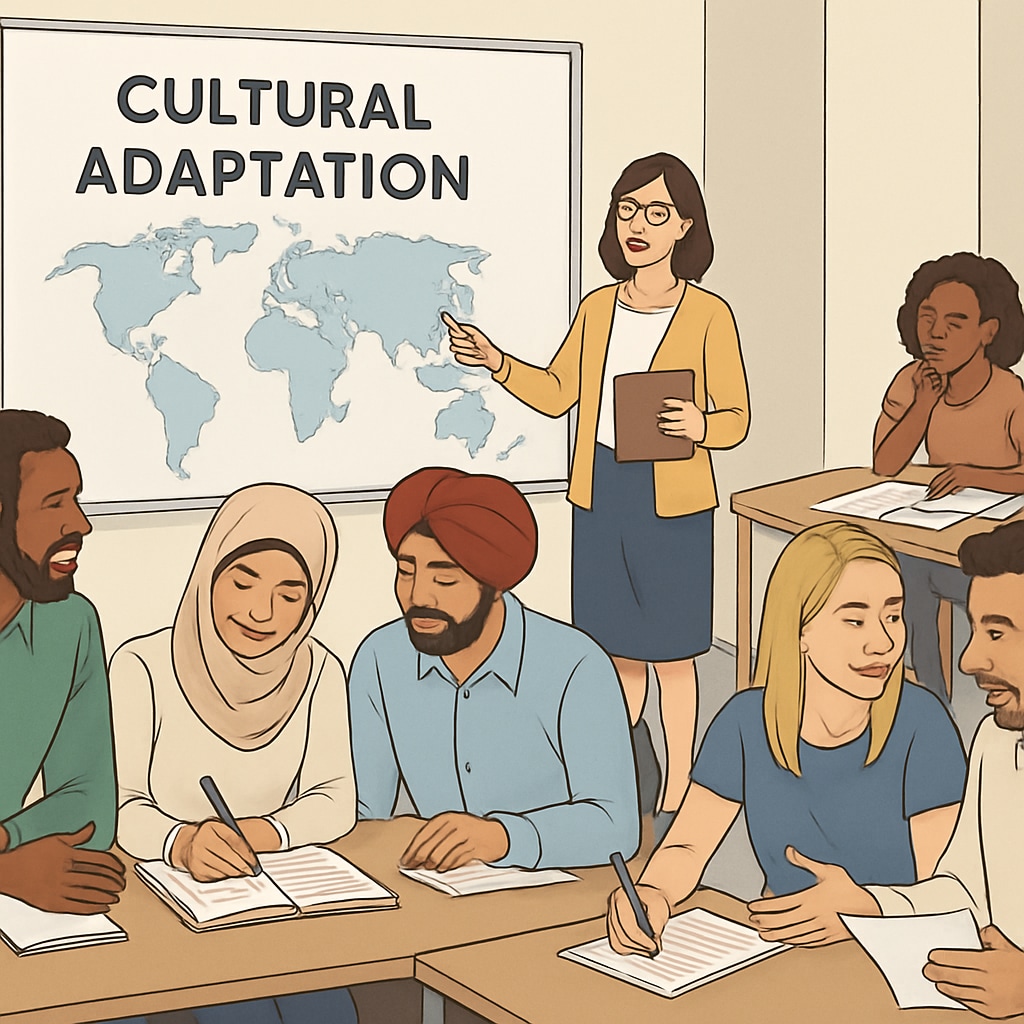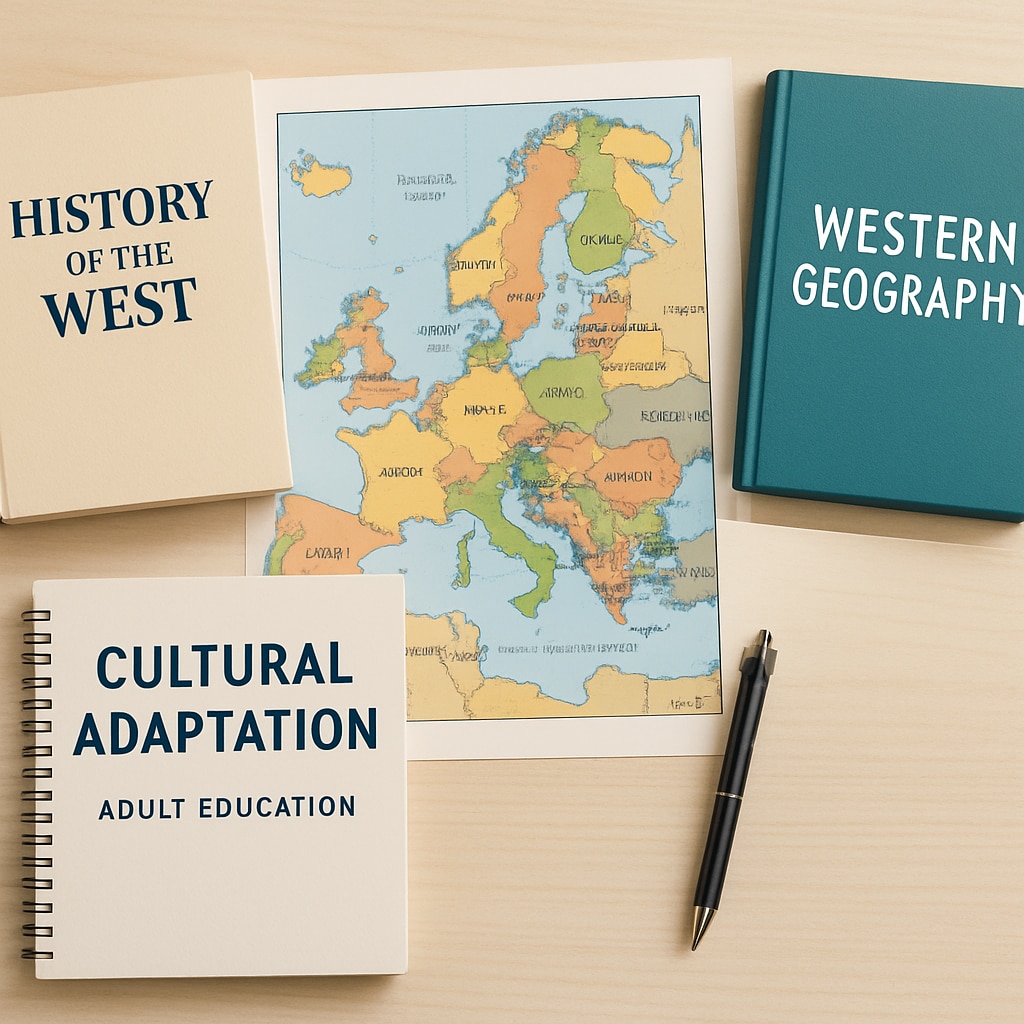Adult education for cultural adaptation and basic knowledge plays a crucial role in helping foreign students integrate into Western societies. Many adult learners arriving from different cultural backgrounds struggle with unfamiliar academic concepts, particularly in subjects like history and geography. As a result, this knowledge gap can lead to feelings of isolation and hinder their ability to fully participate in local communities. By offering tailored courses in foundational subjects, educators can empower these students to better understand Western culture and enhance their overall integration experience.

The Importance of Teaching Foundational Subjects
Foundational subjects such as history, geography, and civics are deeply intertwined with a region’s cultural identity. For foreign adult students, understanding these topics can provide context for societal norms, traditions, and values. For example, Western history often influences modern political systems and social behaviors, while geography explains everything from urban planning to environmental practices. Without access to this knowledge, adult learners may miss key cultural nuances.
To address this, specialized education programs can bridge the gap by focusing on these subjects. Such initiatives not only improve academic proficiency but also foster cultural awareness. As a result, adult students gain the confidence to engage in conversations, build relationships, and navigate their new environments effectively.

Tailored Courses for Cultural Integration
Effective adult education programs should be designed to meet the specific needs of foreign learners. This involves creating curricula that are accessible, engaging, and relevant to their daily lives. For example, a geography module might focus on local landmarks and transportation systems, while a history module could cover major events that shaped the nation. Incorporating interactive activities, such as field trips or group discussions, can further enhance learning outcomes.
Additionally, instructors should consider the diversity of their students. Learners may come from different countries, languages, and educational backgrounds. Therefore, courses should be adaptable, offering multi-language support and flexible schedules to accommodate individual circumstances.
- Focus on practical knowledge (e.g., local history and customs).
- Offer interactive activities like field trips and role-playing.
- Provide resources in multiple languages.
- Ensure flexible timing for working adults.
How Cultural Awareness Enhances Social Integration
Cultural awareness is a vital component of successful integration. When adult learners understand the societal norms and values of a Western culture, they are more likely to feel accepted and less intimidated in social settings. For example, learning about local holidays, traditions, and etiquette can enable them to participate confidently in community events or workplace interactions.
Moreover, cultural awareness helps mitigate misunderstandings or stereotypes that may arise due to differences in behavior or communication styles. By fostering mutual understanding, adult learners and their communities can build stronger, more inclusive relationships.
Cultural awareness on Wikipedia provides further insights into the importance of understanding societal norms.
Challenges and Solutions
Despite its benefits, implementing adult education programs for cultural adaptation comes with challenges. Funding constraints, limited access to resources, and language barriers are common obstacles. However, these issues can be addressed through partnerships with local organizations, government support, and the use of technology.
For example, online learning platforms can provide cost-effective solutions, offering video lectures, interactive quizzes, and digital textbooks. Community centers can also play a role by hosting workshops and connecting learners with mentors. Collaboration between educators, policymakers, and community leaders is essential to ensure the success of these programs.
As a result, adult students can overcome barriers and thrive in their new environments. For more details on strategies, visit Adult education on Britannica.
Readability guidance: This article uses concise paragraphs and lists to summarize key points. It avoids overuse of complex structures and maintains high readability by using transition phrases and active voice.


